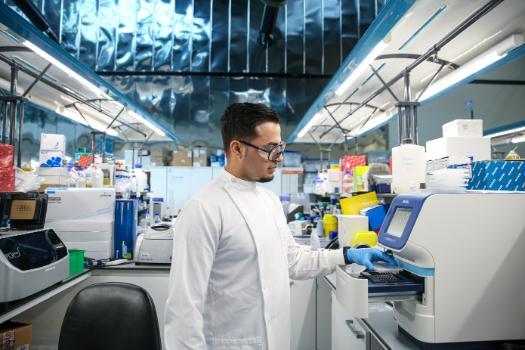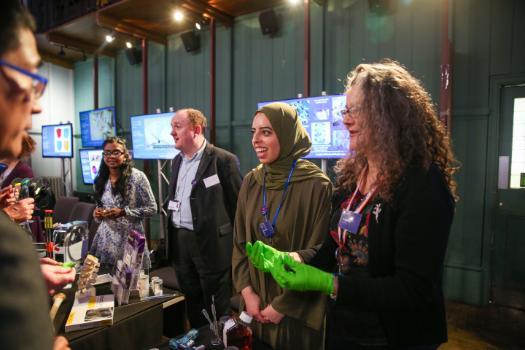
Advancing Artificial Intelligence
At a glance
- Gain access to scientists and engineers working at the very edge of what’s possible, and help us achieve real-world impact from our research.
- Our Digital Environment Research Institute has an innovative, agile model which brings together world-leading researchers to drive multi-disciplinary data science research and create leading-edge applications.
- Our Centre for Digital Music is a world-leading, multidisciplinary research group, responsible for numerous spinouts and collaborations with companies large and small.
- Half of UK businesses plan to prioritise investment in artificial intelligence, according to the Financial Times. We’re working with companies large and small, in industries as varied as healthcare, music, and viticulture, to create new possibilities for AI.
Advancing AI for drug discovery with AstraZeneca
Led by Professor Greg Slabaugh, our researchers are working with AstraZeneca to accelerate the development of new medicines through new analytical capabilities.
Together, we’re developing and refining algorithms for multimodal data integration. These algorithms integrate various types of omic data—such as RNA, protein, and imaging—from pharmacologically or genetically modified cells. The goal is to expedite small compound drug discovery by identifying the most informative omics technologies, creating reference datasets, and maximising value from AstraZeneca's ongoing efforts in medicinal chemistry.
To do this, we’re applying machine learning algorithms developed here at Queen Mary and our academic expertise to AstraZeneca’s multi-omic datasets. We’re refining and developing them to create new omics analytical capabilities to look for ways to streamline the drug discovery process, making it faster and more cost-effective.
AI has significant potential to bring new treatments to more patients faster. It typically takes over ten years and more than $1bn to bring a new drug to market, so accelerating the process using AI has great potential to reduce time and costs. By combining our academic expertise with industry data and biological knowledge, we hope to make a transformative impact for patients and the entire field.
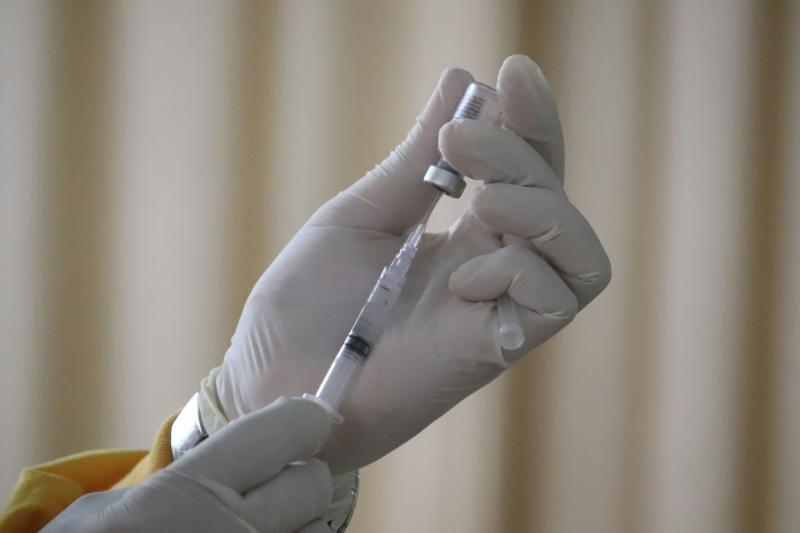
Creating new possibilities for musicians
We’re partnering with numerous music tech start-ups to develop new ways to use AI in music to the benefit of creators.
Meanwhile, industry giants like Sony and Universal are benefitting from the talents of our early-career researchers by sponsoring PhD study at our Centre for Digital Music.
We have a long running collaboration with RoEx, a Queen Mary spinout, to break the barriers to entry for artists through AI-powered music mixing.
“Our approach is enriched by the world-class expertise from our partners at Queen Mary University of London, known for their innovative research in audio engineering, audio signal processing, and machine learning.” David Ronan, Founder and CEO of RoEx
Meanwhile, our collaboration with AudioStrip is creating new possibilities by developing advanced machine-learning algorithms that can automatically detect musical instruments for high-quality audio source separation.
“By partnering with Queen Mary, we aim to elevate music source separation technology beyond industry benchmarks, making it an indispensable tool for DJs, independent artists, producers, and licensors.” Basil Woods, Co-Founder and CEO of AudioStrip
Collaborations like these show how responsible AI can be good for the arts, enabling artists to push their creativity to new levels.
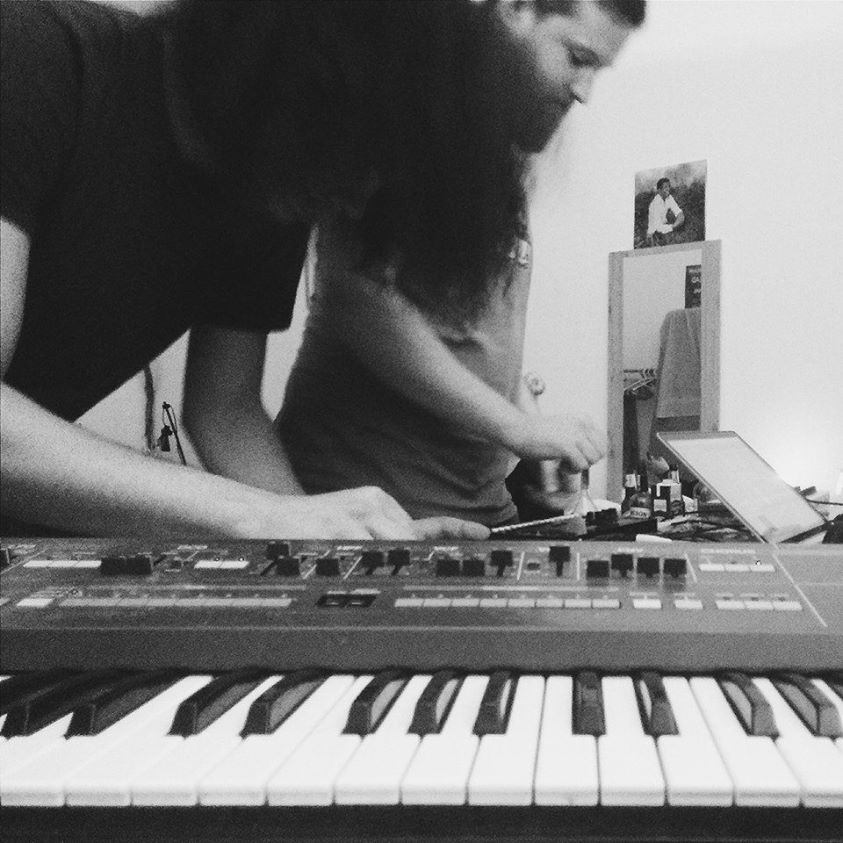
Bringing robotics into winemaking
Winegrowing is Britain’s fastest growing agricultural sector. The labour-intensive task of pruning and harvesting grapes, and indeed other high value crops like berries and other fruits, demands skill and dexterity.
Our three-year partnership with Extend Robotics and Saffron Grange vineyard seeks to develop cloud-connected AI components that will enable the robotic automation of pruning and harvesting the grapes.
Queen Mary scientists Prof Lei Su and Dr Ketao Zhang are bringing their expertise in remote sensing and image spectral analysis to enable the robot to see which grapes are ripe.
We believe this innovative technology will bring significant benefits to the British viticulture industry, making it more competitive and sustainable, while also contributing to the growth of the UK economy and providing a competitive edge in the global wine market.
“We’re going to change the face – and future – of viticulture in the UK.” Dr Chang Liu, Founder and CEO of Extend Robotics
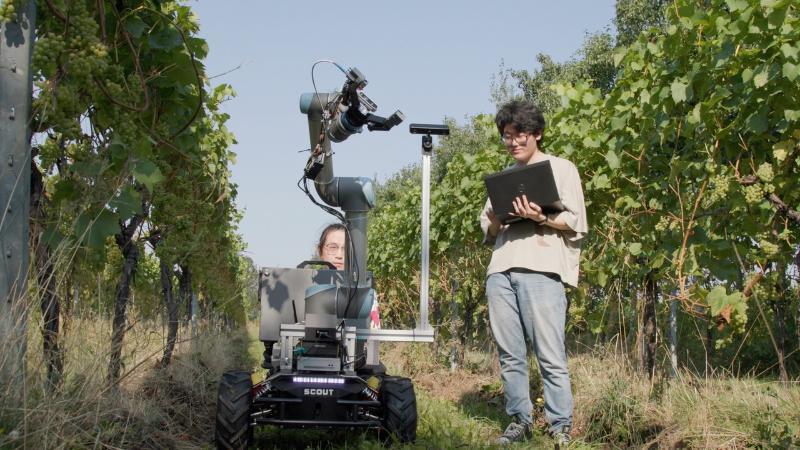
Key takeaways
-
Our researchers are developing practical and responsible uses for artificial intelligence across a full range of industries.
- By working with Queen Mary, you benefit from leading expertise and can help shape the direction of AI research.
